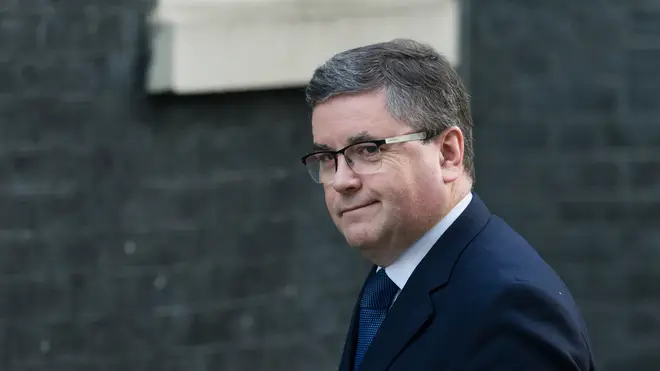
Tom Swarbrick 4pm - 7pm
3 February 2020, 18:07 | Updated: 3 February 2020, 18:27

The government will introduce emergency legislation to prevent the early release of terrorists, the justice secretary has told MPs.
Speaking in the wake of the Streatham terror attack, Robert Buckland also said the Parole Board should review cases before such offenders are freed.
Sudesh Amman, 20, was shot dead by armed police after he took a knife from a local shop and attacked two bystanders in Streatham High Road, south London, on Sunday.
A third person was injured by flying glass during the gunfire.
The 20-year-old was only released from prison two weeks ago for previous terror-related offences - including possessing and distributing terrorist documents - in December 2018.

The justice secretary told the Commons on Monday: "Yesterday's appalling incident makes the case plainly for immediate action.
"We cannot have the situation, as we saw tragically in yesterday's case, where an offender - a known risk to innocent members of the public - is released early by automatic process of law without any oversight by the Parole Board.
"We will be doing everything we can to protect the public, that is our primary duty.
"We will, therefore, introduce emergency legislation to ensure an end to terrorist offenders getting released automatically having served half of their sentence with no check or review."
The justice secretary then said that offenders must "no longer" receive automatic releases before the end of their sentence.
Instead, he suggested the Parole Board carry out a risk assessment to decide whether or not the offender is safe to leave prison.
He added: "We face an unprecedented situation of severe gravity and, as such, it demands that the Government responds immediately and that this legislation will therefore also apply to serving prisoners."

Under the legislation, offenders will only be considered for release once they have served two-thirds of their sentence.
Additionally, they will only be granted release before their full custodial term is up if the Parole Board signs it off.
The justice secretary then said: "We will ensure the functions of the Parole Board are strengthened to deal even more effectively with the specific risk that terrorists pose to public safety so, for example, we will ensure that the appropriate specialisms are in place.
"That work is in train and we will take steps to implement this as soon as possible."
Mr Buckland went on: "When someone is released we will always make sure that terrorist offenders are subject to the most robust safeguards and we will consider whether new legislation is required to provide additional assurance.
"Finally, we will review whether the current maximum penalties and sentencing framework for terrorist sentences is indeed sufficient or comprehensive, on the underlying principle that terrorist offenders should no longer be released until the Parole Board is satisfied that they are no longer a risk to the public.
"We face a threat from an ideology that takes no heed for others and we must use every tool we can to make sure that that threat is neutralised."
But Clare Collier, an advocacy director for campaign group Liberty, said the plans were "a cause of increasing concern for our civil liberties", describing it as a "threat to break the law by changing people's sentences retrospectively" which could "create more problems than it solves."
The attack in Streatham follows the tragedy at Fishmongers' Hall in the City of London in November when another convicted terrorist, Usman Khan, murdered two people despite being on probation.
Cambridge graduates Jack Merritt, 25, and Saskia Jones, 23, were stabbed to death at the rehabilitation conference.